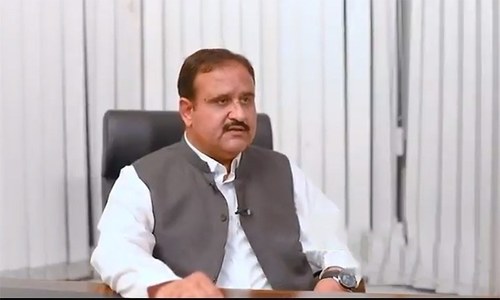The unhappiness quotient is on the rise in the city that measures quotients by the hour. This week, however, unhappiness seems to be percolating down from an unlikely quarter: the ruling party itself.
How can the ruling party be unhappy about its own work? A relevant question indeed, but if the party is broken down into individual fragments of its larger whole, white noise begins to take a coherent shape of grievances, mutterings, grumblings, complaints and quiet finger-pointing.
The last few days have illustrated why there is growing unease within the ruling PTI. The perfect storm of unending mini and mega crises engulfing the government are framing this unease starkly against the sombre and greying political horizon.
“We are doing this to ourselves,” a ruling party lawmaker told me recently. “But no one is willing to listen and no one is willing to admit our own faults,” the lawmaker grumbled. Troubles are mounting and the list of crises is growing longer by the day: shortage of wheat, mistrust of allies, looming problem of sugar, firing of key ministers in KP, IG Sindh controversy and the mother of all disasters — Punjab. Nearly all of these problems, admit PTI insiders, are self-created or self-generated. And many PTI lawmakers are convinced the mishandling of these problems is eating into their political capital, and perhaps even their vote bank.
Disenchantment within the party should worry the PTI leadership. Worrying, however, is never a plan of action — tackling the root of the worry is. But here’s the conundrum: there is no single root but a growing variety. So where does one start?
For instance, why has only a fraction of the Punjab development budget been utilised so far? Lack of vision, lack of priority or lack of capacity? Why is there no public project worth its name coming up in Punjab or KP (or for that matter Sindh, but that’s for another time)?
For instance, why are the grievances of the allies not being genuinely addressed? Why is severe lack of governance not being accepted as a problem in the two provinces ruled by the PTI?
For instance, why is there a growing perception that the famed and much-touted ‘one-pageness’ is under strain? For instance, why are senior people within the party complaining about other senior people in the party and accusing them of interfering in others’ domains and focusing more on political statements than genuine work? And for instance, why are so many people — once hyper-motivated — feeling disillusioned?
One constituency politician from Punjab, who had migrated to the PTI before the 2018 election, recently told a colleague from his former party: “Kidhar phans giya hoon maey (where have I landed myself)”.
Another lawmaker, who was a vocal proponent of Tabdeeli, complained that parliamentary performance of his party colleagues had also suffered because most have “stopped being excited”.
There are small reasons for this dismay and a few big reasons, say these lawmakers. For starters, the style of governance is cramping the space for productive decisions. The prime minister works very hard and very long hours, which is a good thing. But there’s a problem. He has drowned himself in meeting after meeting after meeting of the type that a prime minister should not be drowning himself in. Many of these meetings are far below his level. And yet, he chairs them and discussion happens and then time runs out because there are so many more meetings waiting.
Often the minutes that are taken of the meeting do not reflect what happened in the meeting and sometimes the minutes become a casualty of time. Often decisions are not taken or not clarified or not properly recorded or not communicated or not followed up or not executed in the spirit they were discussed. Multiply this by numerous meetings per day multiplied by seven days of the week and four weeks of the month. U-turns are an organic byproduct.
Three other trends are dominating the prevalent culture within the higher echelons of the PTI government: first, gradual vanishing of dissent and debate before decisions; second, a renewed intense focus on pleasing the PTI base by obsessing with accountability of the opponents at the expense of every other issue; and third, an obsession with media coverage and perception-management often at the expense of actual work.
This is the pressure you face when chasing a big total in a limited-over cricket game and not having enough runs on the board by the middle of the innings. The PTI government is realising that the political run rate is increasing dangerously. But parallels with cricket can go only that far.
How do you explain the fact that a big budget has been allocated for Fata districts but the KP government is struggling to convert this money into actual development work on the ground? How do you explain the devastating effect of inflation on citizens without the PTI communication teams succeeding in explaining how this pain will lead to better times (if that be so)? The list goes on.
What is aggravating this unease in the capital’s Red Zone is the absolute refusal of the leadership to acknowledge the existence of this unease. It is understandable if the leaders put up a brave face in public but the problem here is that even in closed-door internal meetings, the leadership is insisting all is well and a combination of mafias plus media is spelling doom and gloom.
Published in Dawn, January 30th, 2020















































